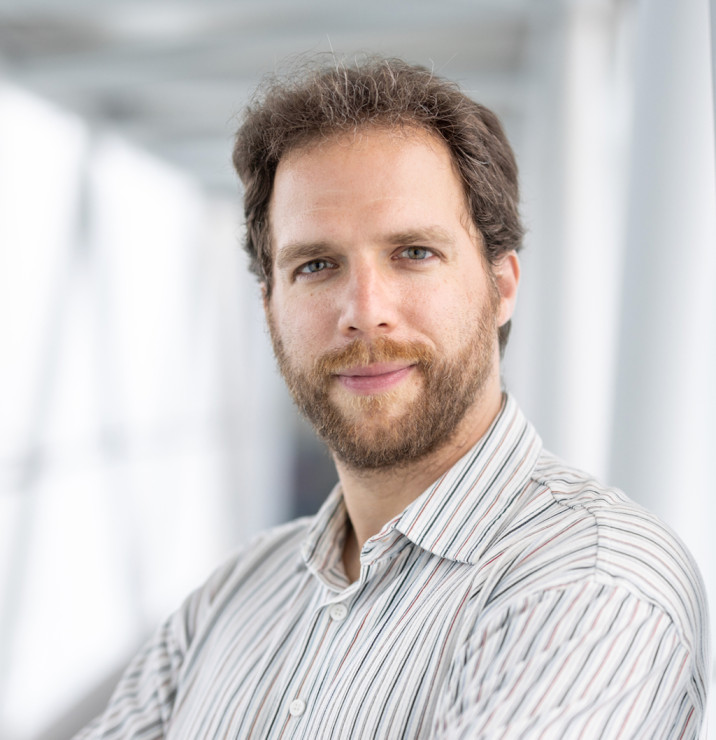Tamas Korcsmaros

I am a systems biologist working with both computational and experimental approaches to study signalling networks in the gut. For 15 years, I have been working in the field of intra- and inter-cellular signalling networks and the regulation of autophagy, a key cellular process for maintaining health and fight diseases. I am particularly interested in how cell-cell and cell-microbe interactions affect intestinal homeostasis, and how we could use precision medicine to tackle current challenges to treat patients with inflammatory bowel disease. In my group we have developed gap-filling computational resources and applied experimental novel systems, such as organoids, to achieve these goals. A recent interview with me can be accessed HERE and a recent lecture summarising our work can be seen on youtube.
Short biography
I started my research as a high school student in a biochemistry lab. After four years of experimental research work on redox biology in the liver, I gained my MSc degree at Eötvös Loránd University in Budapest, Hungary. Then, as a PhD student, I developed a signalling network database, SignaLink, which filled a vital niche in the landscape of bioinformatics tools, and by now it has become one of the most used signalling network resources for human and model organism studies. In Budapest, I established and led the “NetBiol” Network Biology group, which has developed additional novel databases and web-services to meet key scientific community needs. In March 2014, I moved to the UK, to the Norwich Research Park, where I received a special 5-year BBSRC fellowship to work in the computational biology and sequencing focused Earlham Institute and in the gut microbiome centred Quadram Institute. This fellowship allowed me to establish a multi-disciplinary group that combines computational and experimental approaches, including gut organoids. Between 2017 and 2021 I was leading the systems genomics workpackage of the UKRI-BBSRC funded institute strategic programme of the Earlham Institute. In 2019, I was appointed as a Tenure-track group leader at the Earlham and the Quadram Institutes. Our group has carried out multiple projects to predict, analyse and validate host-microbe interactions in the gut, especially in relation to the regulation of autophagy by microbes and upon disease conditions such as inflammatory bowel disease (IBD) and cancer. I moved to Imperial College in 2021 as a Senior Lecturer, and remained an affiliated group leader in Norwich. At Imperial, I am also co-leading the NIHR Imperial BRC Organoid Facility. Thanks to the multi-disciplinary background and interest of my group as well as to the great collaborators we are lucky to work with, our group can investigate challenging and complex questions as described in the 'Projects' tab.
I am a strong believer that technology transfer is crucial in modern life science research. In the last 10 years, I coordinated three innovation grant programs, including one enabling the development of a biomedical software framework, NavigOmiX to facilitate multi-scale omic data analysis and precision medicine. In the last 5 years, I raised or received £1,3M worth of funding to develop a market ready product for this software. In 2013, I co-founded a US based network pharmacology company together with Laszlo Albert Barabasi (University of Notre Dame and Harvard University) and Joseph Loscalzo (Harvard Medical School), where I was an external senior scientist till 2015.
I established a combined bioinformatics lecture and practical course for Master students (in 2010) and an introductory practical course for BSc students in Budapest (in 2011). Both courses are still going with a similar but updated curriculum. For four years, I have taught systems biology for 450 university students per year in Budapest. I was a trainer on numerous courses, including a FEBS Practical Course, sixteen EMBL-EBI courses and three other institutional courses in Norwich. In 2016, I co-organised two EMBO Practical Courses. Between 2016 and 2020, I co-ordinated the Norwich Research Park DTP course on Computational and Systems Biology for all first year PhD students.
Since 2001, I have been participating as a volunteer in Hungarian and international talent support organisations. I organised more than 10 high-school student research conferences. Between 2004 and 2007, I established a university student leadership program for biology students to organise and manage scientific research-related programs and conferences (this program is still in action, currently with double number of students compared to 2007). Currently, I am the Chairman of the Board of the Research Student Foundation supporting 5000 high-school research students in Eastern Europe. I took this role after the financial crisis, when most of the funding sources and donations disappeared, and the research student movement was in danger of dissolving. In two years, I was able to secure the future for this special initiative by restructuring the organisation and its programs, attracting more students, involving new sponsors (such as Microsoft) and establishing an office with three full-time staff working on operational tasks.
I played a major role in the organisation of eight international conferences (each with more than 1000 participants), including one FEBS Congress. As a main organiser, I established the Interdisciplinary Signaling Workshop, which was organised twice already in 2014 and 2017, and the next one is scheduled for 2023.
